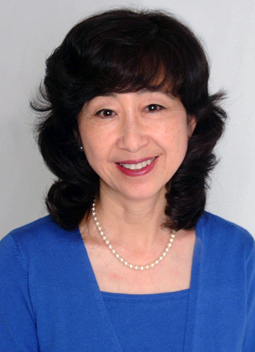
The odds of contracting mad cow disease from banned or adulterated bovine protein lurking in raw or processed food for humans or meat-bone meal for livestock have declined over the past decade. So have the risks of purchasing fishy imposters billed as red snapper, ground beef that isn’t all cow, or spoiled meat that doesn’t look or smell bad … yet.
All that consumer protection is thanks in part to improved food-testing methods — quicker, more reliable paper-strip field tests and simpler, more accurate laboratory assays — developed since the 1990s by food scientist Yun-Hwa Peggy Hsieh of The Florida State University. Currently, four assays in commercial use worldwide feature her patented technology.
Now, with two recent grants totaling nearly $500,000, Hsieh will begin work on the development of two new immunoassays for commercial use on both raw and processed food products. With a three-year, $280,000 award from the United States Department of Agriculture, she’ll design a test to detect fish allergens, which cause allergic reactions in more than 6 million people each year in the United States alone. And, with a two-year, $216,000 award from a division of the Tanaka Kikinzoku Group of Japan, Hsieh will devise a rapid test to detect traces of pork fat — good news for more than a billion Muslims and millions of Jews who adhere to Halal and Kosher dietary laws, respectively, that forbid pork consumption.
"In 2004, the Food Allergen Labeling and Consumer Protection Act (FALCP) called for mandatory labeling of the eight major allergenic foods by January 2006, but while methods have been developed to detect the presence of shellfish, peanuts, tree nuts, wheat, soy, cow’s milk and egg, currently there’s still no way to test for fish proteins in food materials," Hsieh said.
"With the increase in the production and consumption of seafood in recent years, more consumers with fish allergies are at risk of serious reactions or even death than ever before due to mislabeled or undeclared fish byproducts," she said. "My USDA grant will enable me to develop a convenient and reliable tool to enforce FALCPA and protect those consumers."
Hsieh expects to publish one or two papers per year during the course of the grant period. She anticipates at least one patent application for the project once it is completed.
"A fast, effective fish allergen immunoassay has the potential for immediate commercialization," she said. "Currently, two domestic biotechnology companies, who already have licensed several of our species-specific tests for food and feed control in heat-processed products, are marketing immunoassay kits for detection of ingredients in all seven types of foods listed in the ‘Big Eight’ except for finfish. Since the FALCP labeling mandate took effect in 2006, these companies have been eagerly seeking assays for fish detection, and they have shown strong interest in my laboratory’s research efforts to develop fish-specific ones."
Awarded on the heels of her USDA fish-allergens grant, Hsieh’s two-year grant from Tanaka Kikinzoku Kogyo K. of Japan will help to advance her earlier research on the detection of pork products in food and feed products.
"I previously developed a rapid pork immunoassay that can sensitively detect any pork muscle in food and feed mixtures regardless of their processing conditions," Hsieh said. "This assay was commercialized in 2000 and has been widely used internationally. However, detection of pork fat remains challenging due to the physiochemical nature of the fat. Currently available methods all require sophisticated instruments coupled with complex data analysis procedures for interpreting results. Rapid field tests of pork or any other fat are non-existent.
"With this grant, I hope to change that, because such tests are vital to practicing Muslim and Jewish populations," she said.
Hsieh’s novel and commercially successful food-testing technology took off in the 1990s when her research first revealed that even the rigors of rendering didn’t destroy certain marker proteins in animal muscle tissue. With that discovery, she developed immunoassays using specific antibodies that react to the presence of those thermostable proteins and identify which species they come from. Results from her immunoassays have trumped those of traditional analyses — time-consuming food testing processes fraught with false positives and negatives because the high heat of rendering causes most animal proteins and DNA to degrade.
A distinguished professor in the Department of Nutrition, Food and Exercise Sciences at Florida State University’s College of Human Sciences, Hsieh holds 11 patented and patent-pending technologies. Learn more about her cutting-edge research at www.chs.fsu.edu.




